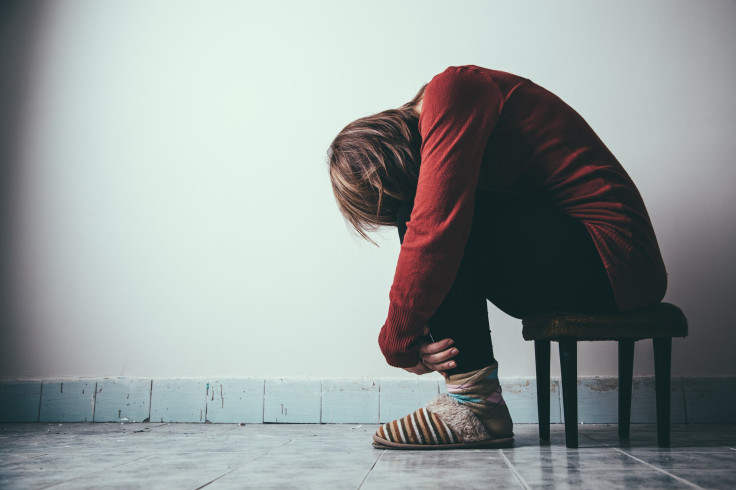Drug Addiction, Unmasked : The Types Of People Most Likely To Get Addicted And Why

Addiction is a complicated affliction, affecting people of all ages, intelligence levels, and backgrounds. It's hard to tell what causes some people to be more prone to addiction than others; it's usually a mix of many factors, from family background, genetics, environment, stress, and personality traits.
The National Institute on Drug Abuse lists some basic addiction risk factors, such as trouble at home, mental health issues, friends or family members who abuse drugs, or your biology and genetics. But you might be surprised at the types of people who might have a higher risk of becoming addicted to drugs — such as white people, people with higher IQs, and those suffering from ADHD or bipolar disorder.
Young Men And White People
Young people in general (aged 18-24) are more likely to abuse drugs — particularly young men compared to women. In addition, despite the fact that young black people are arrested for drug crimes at a much higher rate than whites, research has shown that white people are actually more likely than blacks to abuse drugs. In a 2012 study, researchers found that 15 percent of Native American youths had the highest chance of getting a substance abuse disorder, compared to nine percent of whites, five percent of African-Americans, and 3.5 percent of Asian Americans.
Children Of Drug Abusers
According to the National Institutes of Health (NIH), the risk of addiction in general goes up for children of alcoholics or drug addicts. Children of parents who abused drugs are 45 to 79 percent more likely to abuse drugs themselves than the general population. This could mean that addiction is rooted in genetics and might be inherited, but it could also mean that drug abuse could be impacted by environmental factors, such as the family background in which the child was raised and influenced.
People Suffering From Depression And Bipolar Disorder
Individuals who suffer from bipolar disorder, depression, or other mental illnesses are more likely to partake in substance abuse — whether it’s drugs, painkillers, or alcohol. According to DualDiagnosis.org, “[o]ne reason for this phenomenon is that a large percentage of individuals attempt to self-medicate with drugs and alcohol in an effort to numb the painful symptoms of their bipolar disorder.” The anxiety, sleeplessness, lack of motivation, and depression associated with bipolar disorder might trigger someone to turn to drugs for coping — but it’s a vicious cycle, where drugs and alcohol can lead to the exacerbation of these symptoms.
“People with bipolar disorder may turn to drugs or alcohol out of an unconscious need to stabilize their moods,” DualDiagnosis.org writes. “Unfortunately, substance abuse has the opposite effect, making the symptoms of bipolar disorder worse.”
Of course, there’s also the classic link between substance abuse and creative people; musicians, artists, and writers have historically been associated with raging alcoholism, depression, experimenting with drugs, as well as the tragedies of suicide and overdosing.
People With Higher IQs
The high school dropout working at a gas station will be more likely than the class nerd to become a drug addict, right? At this point, we all know pretty well by now that the stereotype isn’t true. In fact, some of the highest-paid and most successful professions — from investment bankers to doctors and lawyers — are riddled with hard drug use and cocaine dependency. Whether it’s the stress, isolation, or failed relationships and marriages that are associated with these professions, it’s hard to tell what drives these people to substance abuse.
Though it might seem counterintuitive, there are theories that claim children with higher IQs grow up to be more likely to use psychoactive drugs (marijuana, heroin, cocaine) in their later years than children who were deemed “dull.” One theory is that smarter people are able to intellectualize their drug use more — which is different from rationalization and denial. Some research has shown a link between more intelligent children and drug use later on in life. But no one has yet been able to prove a causation between the two; for now, it remains correlation.
‘Sensitive’ Folk
People who are more sensitive to stimulants and the stimulating effects of alcohol and drugs will be at a higher risk of becoming addicted, according to past research. In a 2012 study, researchers found that people with “negative emotionality,” also known as negative affectivity, had higher rates of drug abuse. Negative emotionality is a personality trait that dictates how frequently or intensely people experience dark emotions like anger, stress, or sadness — feelings that can contribute to impulsivity and irrationality. People who are more prone to experiencing intense negative emotions might also have a higher risk of turning to drugs for a relief, escape, or comfort.
“Prior research has consistently demonstrated a strong relationship between personality dimensions of sensation seeking and impulsivity and the initiation of drug and alcohol use, and emerging literature relates urgency, or emotion-based rash action, to heavy and problematic drug and alcohol use," Thomas H. Kelly, a professor of Behavioral Science at the University of Kentucky, said in the study’s press release. "Negative emotionality is a distinct personality dimension from urgency. This study … [demonstrates] that the development of heavy alcohol use is associated with sensitivity to d-amphetamine in combination with negative emotionality, suggesting it is important to examine risk factors and their interaction within the context of the stage of drug use."



























